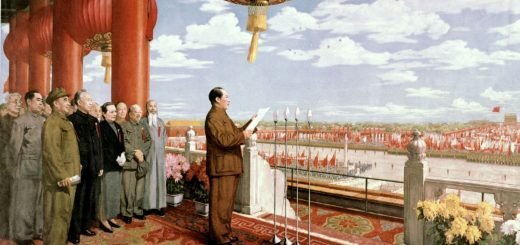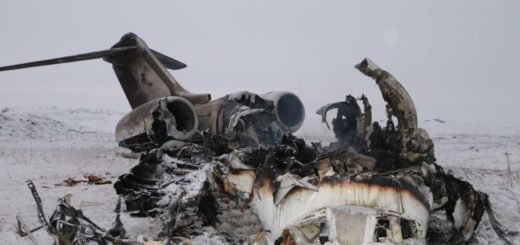The Defense Diplomacy of the Islamic Republic of Iran towards Russia
Defence diplomacy for Iran is a strategy to strengthen the efforts of the defence sector in the area of suppression in the process of reconstruction of the country’s prosperity – Sajad Abedi*
The Islamic Republic of Iran considers defence diplomacy to strengthen the efforts of the defence sector in the supine area in the process of rebuilding the country’s defence base, which has been used as a new concept and has been emphasized in the formulation of a national defence and national security strategy. In this context, Iran’s relations with Russia are becoming increasingly important in the overall political defences of Iran. Given Russia’s strong position in the global power hierarchy, Iran-Russia defence cooperation can provide important achievements for Iran and regional stability and strengthen deterrence strategy.

Iran’s relations with Russia are also increasingly important in the overall political defences of Iran | Image: Press TV
Defence diplomacy is part of the national power of a country that, along with foreign policy, forms the source of power to enhance the capacity of action and action of a country in foreign relations. This diplomacy will not only monitor the application of diplomatic policy but also guarantee the sharing of diplomacy in defence policy.
Indeed, the link between defence and military activities with diplomatic activities can be a powerful interconnected tool of national power. On the other hand, the use of defence diplomacy will be effective both in times of peace and war, as well as in preventing conflicts and even using the capacities of the international environment to strengthen the capabilities and effects of wartime times (including the provision of NDM’s needs).
Read: Why Chabahar agreement is important for Iran? India’s quest to Tehran
Accordingly, defence diplomacy for Iran is a strategy to strengthen the efforts of the defence sector in the area of suppression in the process of reconstruction of the country’s prosperity. Therefore, the achievement of vast capabilities in defense diplomacy requires understanding of the periphery, deep understanding of Iran’s position, theorizing and conceptualization to create a dialogue to strengthen the country’s defense capabilities and capabilities, which inevitably has to rely on global domination and the common discourse in this area is the knowledge of global politics.
In this context, Iran is also considered to be a regional power that has historically had an environmental role, with Iran’s indigenous defensive capabilities growing drastically after the revolution. But this cannot be considered as the only component of improving regional defence capabilities of Iran. Because of the cross-border security conflicts in Iran’s regional environment, the use of defence treaties (bilateral agreements) is the most desirable for Iran. Accordingly, “Russia” is one of the countries and options of interest and interest of Iran in this regard.
Iran’s relations with Russia are also increasingly important in the overall political defences of Iran. Meanwhile, the gradual increase of Russia’s political, military, and economic power in global affair, and more recently regional, has strengthened that Tehran, in the form of a doctrine of looking at the West, could bring a new and broader level of relations by strengthening defense diplomacy in the form of strategic partnerships with Russia, design and experience. Although there are still different perspectives on Russia’s position in the global system, the commonalities of all these perspectives indicate that Russia’s place in the hierarchy of global power has been steady. Hence, the proximity and defence cooperation between Iran and Russia can be a major achievement for Iran to achieve regional stability and strengthen deterrence.

Iran-Russia Defence diplomacy will not only monitor the application of diplomatic policy but also guarantee the sharing of diplomacy in defence policy | Image: Press TV
However, there are two perspectives in the country regarding the relationship with Russia and its evolution: Russia’s approach to Iran is opportunistic, and the Russians only think of their economic-political interests, and in fact, with Iran’s card they’re playing. In contrast, some believe that Russia is a supporter of Iran, but it has its own limitations. It should have had a great deal of expectation from this country. A clear indication of both views in the Russian dualistic approach can be seen in the Security Council’s resolutions on Iran’s nuclear program.
Under the US defence policy and at a macro level, as Iran in the Middle East should not be identified as a regional hegemony, Russia also has a regional hegemony and should be limited in its formal boundaries. Therefore, Iran and Russia have common goals and interests in controlling the extent of US influence in the region. Therefore, the logic of close proximity between the two countries will be important from a strategic and political point of view, based on the elimination of the American threat and the expansion of military and defence cooperation to increase the role of both countries. On the other hand, the Persian Gulf states, Pakistan and even Azerbaijan, as the immediate security environment of the country, have made significant deals with the United States and Israel in the field of military capabilities and weapons, which will change the balance of power to the detriment of Iran.
In response to this trend, along with domestic capabilities, the conclusion of military agreements with Russia, the exchange of information, as well as the exchange of military advisers in a regular program to respond this regional interference and challenges by the United States seems necessary. Realizing this by defending Iran’s defence diplomacy in the form of a proper understanding of Russia’s future military capabilities and capabilities and its military and defence capabilities will provide a better prospect for the country’s military commanders to realize the above-mentioned issues.
In addition, these relationships face significant constraints. The strategic choice of Russia and its special ties to the great powers in the framework of the “peaceful development” approach on the one hand, and the “special” of Iran in the international arena, on the other hand, open the door to serious restrictions on these relations. But what’s more important than that is a change that is taking place in US politics? This change does not mean structural transformation, but the shift in focus, focus and geopolitics, the degree of US attention to issues, and the way foreign policy discourse is formatted, and the national security and defence strategy.
The most prominent symbol of this transformation is visible in politics called the de-consolidation of the Middle East and gravitation towards Asia and the Pacific. As a result, any shift in US strategic priorities and policies toward Asia-Pacific might have a comparative advantage for Iran in the Middle East and the Persian Gulf.
Therefore, it seems that the trends in the security environment of both Iran and Russia are reversed, and as a result, Iran would be in a better position to bargain with Russia. And the conditions in Russia are such that Iran’s defence diplomacy will be relevant to Russia. On this basis, the activation of the country’s defence diplomacy with Russia will be an effective step towards increasing national power.

*Sajad Abedi a Resident Research Fellow at the National Security and Defense Think Tank, Iran. He holds Ph. D. degree in National Security from the National Defense University under the Group of Leader of the Islamic Republic of Iran.
His research interests pertain to Arab-Israeli studies, the Cyber Security studies and National Security.
The views and opinions expressed in this article are those of the authors and do not necessarily reflect the views of The Kootneeti Team.


















